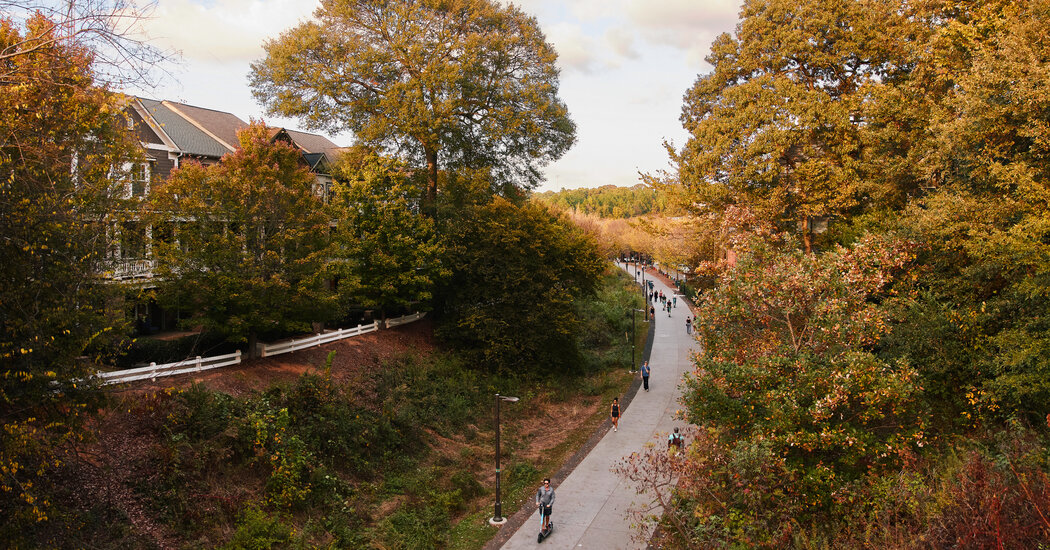Everyone feels lonely from time to time — after, say, a move to a new school or city, when a child leaves for college, or following the loss of a spouse.
Some people, though, experience loneliness not just transiently but chronically. It becomes “a personality trait, something that’s pretty sticky,” said Dr. Ellen Lee, an associate professor of psychiatry at the University of California, San Diego. These individuals seem to have “this persistent emotion that then shapes their behavior.”
Research is mounting that this type of entrenched loneliness is bad for our health and can even change our brains, raising the risk for neurodegenerative diseases. Here’s what experts know about how chronic loneliness affects the brain, and some strategies to address it.
How does loneliness change the brain?
Humans evolved to be social creatures probably because, for our ancient ancestors, being alone could be dangerous and reduce the odds of survival. Experts think loneliness may have emerged as a unique type of stress signal to prompt us to seek companionship.
With chronic loneliness, that stress response gets stuck and becomes disadvantageous — similar to the way in which anxiety can shift a helpful fear response to a maladaptive mental illness.
“Small, transient episodes of loneliness really motivate people to then seek out social connection,” said Anna Finley, a postdoctoral research fellow at the Institute on Aging at the University of Wisconsin-Madison. “But in chronic episodes of loneliness, that seems to kind of backfire” because people become especially attuned to social threats or signals of exclusion, which can then make it scary or unpleasant for them to interact with others.
Research has shown that lonely people are hypersensitive to negative social words, like “disliked” or “rejected,” and to faces expressing negative emotions. What’s more, they show a blunted response to images of strangers in pleasant social situations, suggesting that even positive encounters may be less rewarding for them. In the brain, chronic loneliness is associated with changes in areas important for social cognition, self-awareness and processing emotions.
How could a subjective feeling have such a profound effect on the brain’s structure and functions? Scientists aren’t sure, but they think that when loneliness triggers the stress response, it also activates the immune system, increasing levels of some inflammatory chemicals. When they’re experienced for long periods of time, stress and inflammation can be detrimental for brain health, damaging neurons and the connections between them.
How does loneliness affect long-term brain health?
For years, scientists have known about a connection between loneliness and Alzheimer’s disease and other types of dementia. A study published late last year suggested that loneliness is associated with Parkinson’s disease, as well.
“Even low levels of loneliness increase risk, and higher levels are associated with higher risk” for dementia, said Dr. Nancy Donovan, director of the division of geriatric psychiatry at Brigham and Women’s Hospital. Dr. Donovan has shown that people who score higher on a measure of loneliness have higher levels of the proteins amyloid and tau — two of the hallmarks of Alzheimer’s disease — in their brains even before they show signs of cognitive decline.
Scientists think that the stress and inflammation caused by loneliness most likely contribute to the onset or acceleration of neurodegenerative diseases in older adults. The toll loneliness takes on the cardiovascular system, increasing blood pressure and heart rate, can also have a detrimental effect on the brain and probably plays a role, as well, Dr. Donovan said.
The more general way in which loneliness affects mental and physical health may also factor into cognitive decline. The feeling is closely linked to depression, another condition that increases the risk for dementia. And people who are lonely are less likely to be physically active and more likely to smoke cigarettes. “All those different things can affect how our brains age,” Dr. Lee said. “I think there are many paths to get from loneliness to cognitive decline.”
Most research on loneliness and neurodegeneration has been conducted on middle-aged and older adults, so experts don’t know if loneliness in childhood or young adulthood carries the same risk. However, Dr. Wendy Qiu, a professor of psychiatry and experimental pharmacology and therapeutics at Boston University School of Medicine, has found that if people in midlife feel lonely only transiently, not chronically, there is no increased risk for dementia.
With transient loneliness, the brain has the “ability to recover,” Dr. Qiu said. But if people “don’t have help to pull them out of the loneliness, and for a long time they feel lonely, it will be toxic for the brain.”
How can you combat chronic loneliness?
One of the most common recommendations is a little obvious: Try to make new friends. Whether that’s through art classes, sports teams, support groups or volunteer opportunities, the goal is to put yourself in places where people come together.
These types of engineered social situations have mixed results. Dr. Lee said they tend to work best if there is a “shared identity” among the people involved, like groups specifically for widows or for people with diabetes, so they have something to connect over.
The other side of the equation is addressing a person’s attitudes and thought patterns about social interactions through cognitive behavioral therapy. These approaches tend to be a little more effective, Dr. Lee said, because they “get to the root” of the problem, exploring what makes it hard for a person to interact with others.
The strategies may sound simple, but they’re easier said than done. “It’s a thorny problem,” Dr. Finley said. “Otherwise, I don’t think we would have the report from the Surgeon General saying we need to figure this out.”







